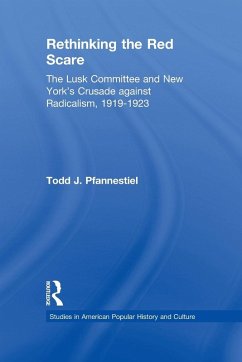
The Red Scare, Ufos & Elvis
Long Beach Enters the Atomic Age

PAYBACK Punkte
11 °P sammeln!
The baby boomer generation (19461964) grew up in a time of dramatic social change. Their experiences in the Cold War were very different from those of their parents. While adults perceived communism as a threat to the American way of lifeto their health and well-being and those of their familiestheir children learned to fear the loss of a future they could grow into and inhabit. These kids of the atomic age wondered if they might be the last children on earth. They were raised on civil defense films, tales of nuclear annihilation, and a world taken over by communism. America had entered the at...
The baby boomer generation (19461964) grew up in a time of dramatic social change. Their experiences in the Cold War were very different from those of their parents. While adults perceived communism as a threat to the American way of lifeto their health and well-being and those of their familiestheir children learned to fear the loss of a future they could grow into and inhabit. These kids of the atomic age wondered if they might be the last children on earth. They were raised on civil defense films, tales of nuclear annihilation, and a world taken over by communism. America had entered the atomic age. Flying saucers were big news, communism appeared rampant, a war in Korea erupted, teens turned to murderers, and there was fear the world might end. It was also a time of transition. Rock n roll entered the scene, space flight became a reality, and the public learned not to blindly accept what the government told them, especially when it came to atomic radiation and waste.













